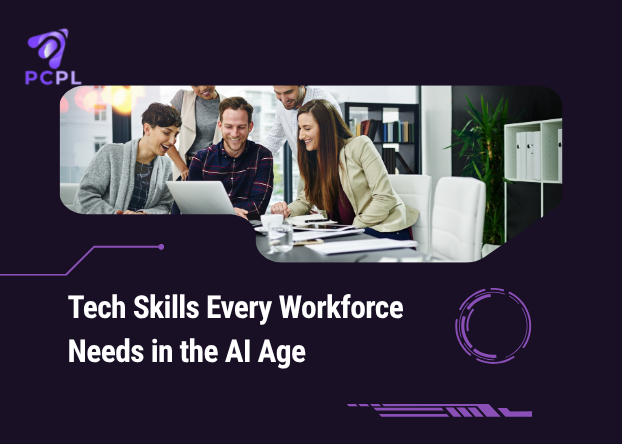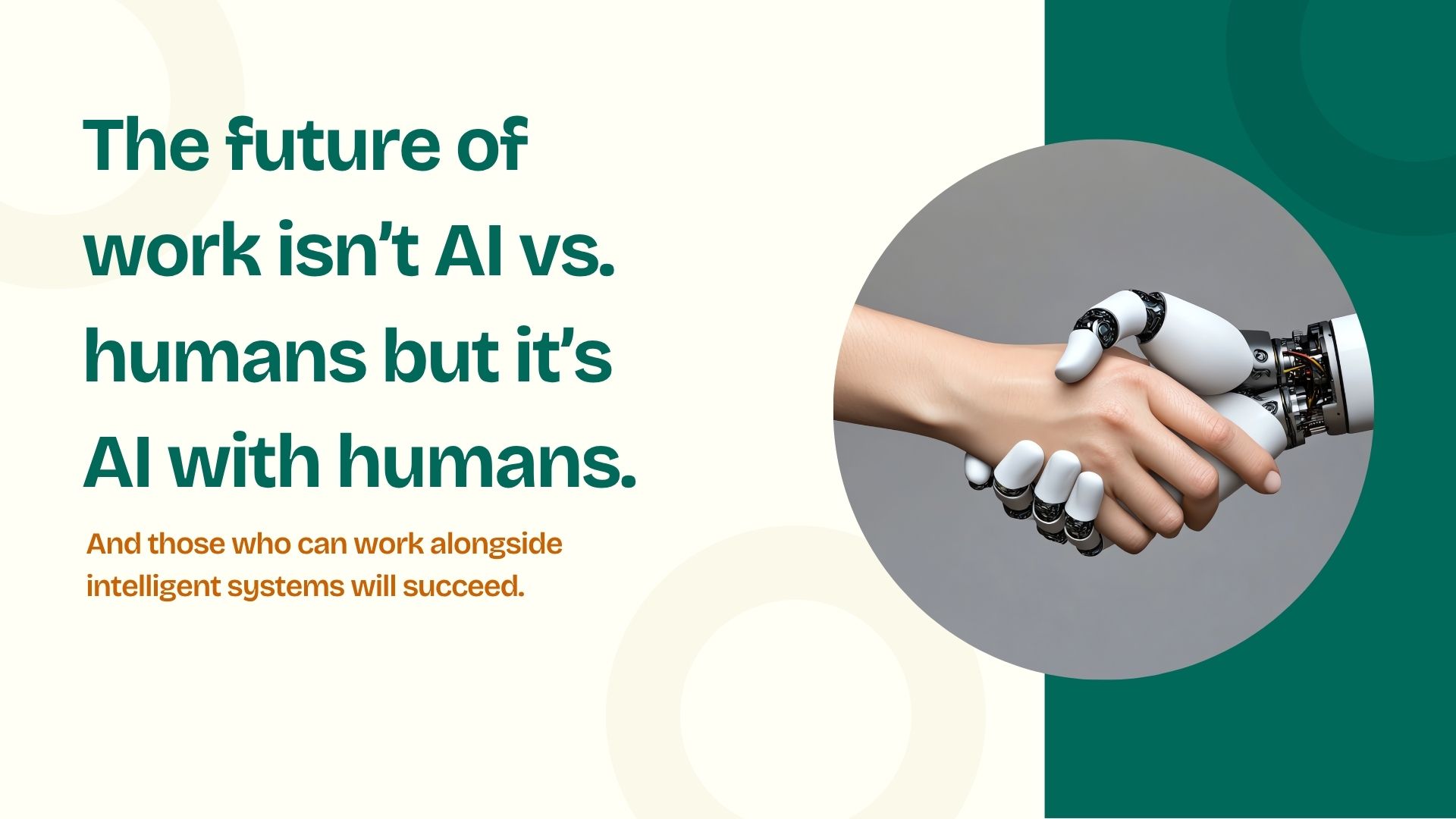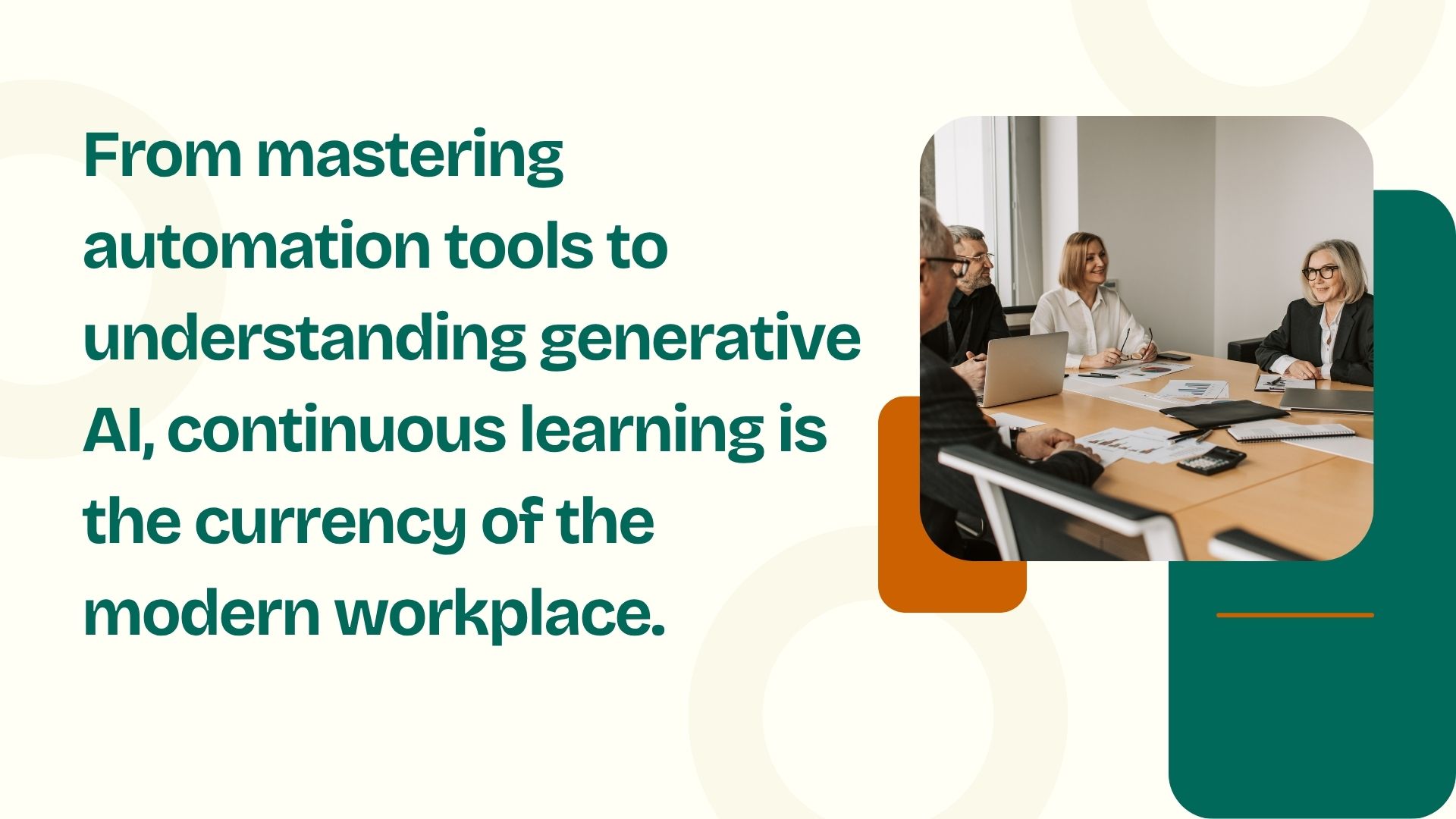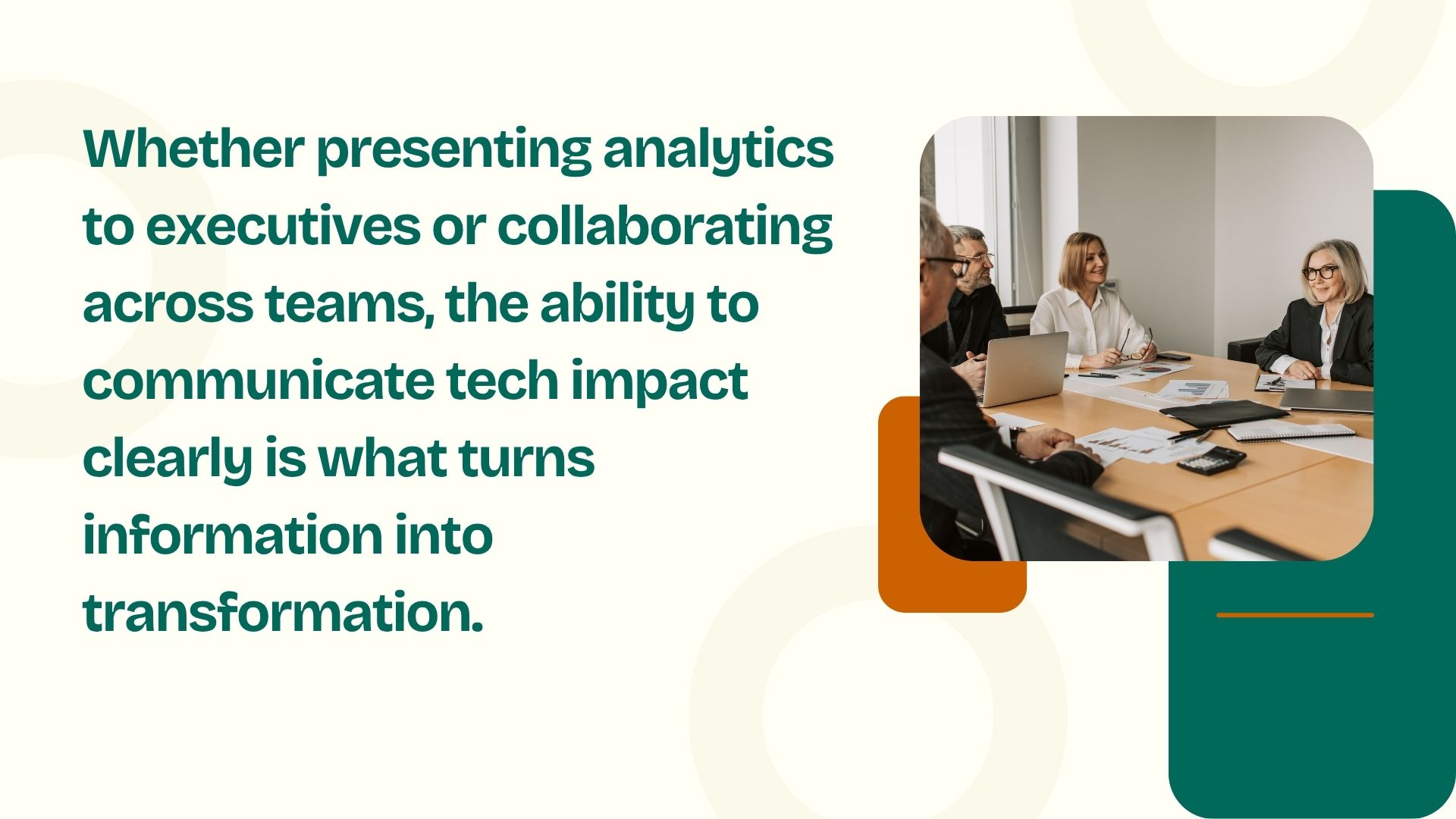
Tech Skills Every Workforce Needs in the AI Age
Everything is transforming faster than ever before in the workfront, thanks to the rapid evolution of artificial intelligence (AI), automation, and digital ecosystems. What was once considered a competitive edge is now a survival skill. Across industries, organizations are realizing that their biggest challenge isn’t AI replacing humans but humans failing to adapt to AI-driven workflows.
As businesses reinvent themselves through digital transformation, one thing has become clear, that the future belongs to a tech-enabled workforce. Regardless of job title or function, every professional now needs a blend of digital literacy, analytical thinking, and adaptability to remain relevant in the AI age.
Important Tech Skills Every Workforce Needs Today
- Data Literacy
AI runs on data and it learns from it, predicts with it, and optimizes through it. But data-driven decision-making isn’t just for data scientists anymore. Whether you’re in HR, marketing, operations, or finance, understanding how to read, interpret, and act on data is a core skill.

Data literacy involves understanding data sources and their credibility, knowing how to interpret dashboards and visualizations, recognizing data bias and its implications, and making informed business decisions based on insights.
As AI systems generate enormous volumes of data, the ability to ask the right questions of the data will distinguish future-ready employees from those left behind.
Upskilling in tools like Power BI, Tableau, or Google Data Studio can significantly enhance your analytical capability, even if you’re not in a technical role.
- Digital Collaboration and Remote Tech Tools
Hybrid and remote work have shifted collaboration from physical offices to digital ecosystems. Teams that once relied on in-person meetings now depend on collaboration tools like Microsoft Teams, Slack, Notion, Asana, and Miro to stay productive.
But mastering these tools isn’t just about functionality but also digital communication fluency.
The modern professional needs to know
- How to manage digital workflows
- How to collaborate asynchronously across time zones
- How to maintain cybersecurity hygiene while sharing information
Moreover, AI is being embedded into these platforms, thus automating meeting notes, summarizing threads, and even suggesting action items. The more employees understand how to use AI in collaboration tools, the more efficient their teams will become.
- AI Literacy
One of the biggest misconceptions about AI is that it’s a “black box” that only engineers understand. In reality, AI literacy is knowing what AI can and cannot do and this is essential for every employee.
AI literacy doesn’t mean coding machine learning models. It means understanding how AI tools assist your role (e.g., chatbots, recommendation systems, content generators), recognizing ethical implications of AI decisions, and knowing how to validate AI outputs rather than blindly trusting them.
For example, marketers must learn prompt engineering to effectively use AI tools for campaign ideation. Recruiters should understand bias risks in AI-driven hiring platforms. Customer support teams should know how to escalate complex issues from AI chatbots to humans.

- Cybersecurity Awareness
With great connectivity comes great vulnerability. As organizations digitize their operations, the risk of cyber threats increases exponentially. Cybersecurity is no longer just the IT department’s responsibility but it’s everyone’s business.
Every employee must understand basic cybersecurity principles such as recognizing phishing attempts, using strong and unique passwords, managing permissions and access rights, and safeguarding data while working remotely.
AI-driven phishing and social engineering attacks are becoming increasingly sophisticated. Employees who aren’t vigilant can become the weakest link in a company’s security chain.
In the AI age, cyber awareness is as fundamental as digital literacy, an essential layer of defense in an interconnected workplace.
- Adaptability and Continuous Learning
Technology evolves faster than any formal education system can keep up with. That’s why adaptability and a growth mindset are perhaps the most important meta-skills in the AI era.
AI will continue to automate repetitive tasks and redefine job roles. What’s relevant today might be obsolete tomorrow. The professionals who succeed are those who stay curious about emerging technologies, continuously reskill through online platforms, and view change as an opportunity, not a threat.

Follow industry newsletters, attend webinars, and explore microlearning platforms like Coursera, LinkedIn Learning, or edX to keep your skills sharp.
- Automation and Workflow Optimization Skills
As AI and machine learning streamline operations, employees need to understand how automation tools work and how to apply them in daily workflows.
This includes knowing how to use RPA (Robotic Process Automation) tools like UiPath or Power Automate, automating repetitive reporting or approval tasks, and understanding low-code/no-code platforms to create quick digital solutions.
For non-technical employees, the ability to build simple automations or integrate systems without relying entirely on developers is a game-changer. It boosts productivity, reduces errors, and accelerates innovation.
Automation means eliminating inefficiencies.
- Cloud Computing Fundamentals
Cloud computing forms the backbone of AI applications. From data storage to running complex AI models, the cloud provides scalability, flexibility, and security.
While every employee doesn’t need to be a cloud architect, understanding basic cloud concepts helps professionals align with their organization’s digital strategy.
Key areas include
- The difference between public, private, and hybrid clouds
- Basics of SaaS, PaaS, and IaaS
- How cloud impacts collaboration, data accessibility, and security
Sales teams, for example, benefit from knowing how cloud-based CRMs work. Product managers should understand cloud scalability for application growth. In essence, cloud fluency enhances cross-functional efficiency in digital-first companies.
- Critical Thinking and Ethical Judgment
AI can process information faster than humans, but it lacks context, empathy, and ethical reasoning. That’s where human intelligence remains irreplaceable.
As AI tools become more embedded in workflows, professionals must develop critical thinking to question algorithmic decisions. They should be able to identify when AI outputs might be biased or incomplete, when a human judgment call is required, and how automation affects fairness, privacy, and inclusion.
Ethical AI use is a daily responsibility. Employees who can balance data-driven logic with human empathy will shape a more responsible digital future.
- Communication and Storytelling with Tech
As data and AI systems generate insights, professionals must be able to translate complex technical concepts into clear, actionable narratives. Communication remains a timeless skill, but in the AI age, it must evolve.
Employees who can blend storytelling with technology can explain AI-driven insights to non-technical stakeholders, drive data-informed decisions with compelling narratives, and simplify complexity without losing accuracy.

- Emotional Intelligence (EQ) in a Tech-Driven World
Ironically, as workplaces become more digital, human skills are becoming more valuable than ever. Emotional intelligence, empathy, self-awareness, collaboration, and leadership, remains at the heart of innovation.
AI can optimize tasks, but it can’t build trust, motivate teams, or create a shared vision. The leaders of the future will combine technical awareness with emotional intelligence to manage hybrid teams, inspire change, and humanize technology adoption.
Building a Future-Ready Workforce
To stay ahead, organizations must invest in continuous learning ecosystems, blending technical training with behavioral skills.
Practical steps include the following
- Creating internal AI literacy programs
- Encouraging cross-functional tech workshops
- Partnering with learning platforms for role-based upskilling
- Embedding digital skills in performance evaluations
The AI age requires collaborating with machines to achieve exponential outcomes. From understanding data and cloud systems to mastering automation and ethical decision-making, today’s workforce needs a dynamic mix of technical and human skills.
As AI continues to reshape industries, the winners will be those who adapt faster, learn continuously, and think critically. In the end, the most powerful technology in any workplace is the human mind capable of using AI wisely.
References
https://www.sap.com/blogs/upskilling-your-workforce-for-the-ai-era
https://hbr.org/2025/10/5-critical-skills-leaders-need-in-the-age-of-ai
